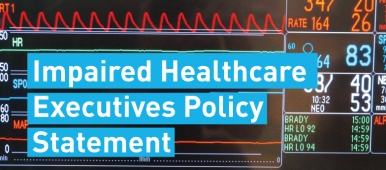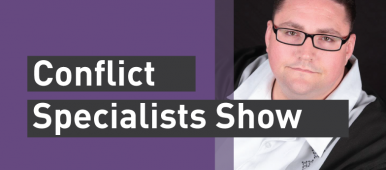
- Mediation
- Arbitration
- Court Neutrals
- Online Dispute Resolution
- Technology
- Court Decisions
- More
- Legislation
- Healthcare
- Guest Posts
- John DeGroote
- John C. Fleming
- Rick Freeman
- Professor Peter Friedman
- Honorable W. Royal Furgeson, Jr.
- James M. Gaitis
- Laura A. Kaster
- Professor John Lande
- Philip J. Loree, Jr.
- Michael McIlwrath
- F. Peter Phillips
- Professor Alan Scott Rau
- Professor Thomas J. Stipanowich
- Professor S.I. Strong
- Richard Webb
- Glen M. Wilkerson
- International arbitration
- Regulation
- Sports and Entertainment
- We’re Back!!!!Well, it’s been a while since we published and that is about to change. Since I spent much of last year becoming
 JAMS Welcomes Karl Bayer to its Panel of NeutralsJAMS, the world’s largest private alternative dispute resolution (ADR) provider, is pleased to announce that Karl Bayer
JAMS Welcomes Karl Bayer to its Panel of NeutralsJAMS, the world’s largest private alternative dispute resolution (ADR) provider, is pleased to announce that Karl Bayer Class Action Waivers in Arbitration Agreements: The Twenty-First Century Arbitration Battleground and Implications for the EU CountriesLinda S. Mullenix, Morris & Rita Atlas Chair in Advocacy at the University of Texas School of Law, has written “Class Ac
Class Action Waivers in Arbitration Agreements: The Twenty-First Century Arbitration Battleground and Implications for the EU CountriesLinda S. Mullenix, Morris & Rita Atlas Chair in Advocacy at the University of Texas School of Law, has written “Class Ac Picking the Proper Technological Tool for Problem-Solving in ArbitrationProfessor Amy J. Schmitz, John Deaver Drinko-Baker & Hostetler Chair in Law and Co-Director of the Translational Data An
Picking the Proper Technological Tool for Problem-Solving in ArbitrationProfessor Amy J. Schmitz, John Deaver Drinko-Baker & Hostetler Chair in Law and Co-Director of the Translational Data An
Recent Posts
Travis County, Texas Civil Courts Remote Jury Trial Pilot Program Webcasts
On Thursday, the Austin Bar Association hosted the first of two free webcasts regarding options that are currently being considered for a Civil Courts Remote Jury Trial Pilot Program that will be offered soon in Travis County, Texas.
Continue reading...International Commercial Courts in the United States and Australia: Possible, Probable, Preferable?
S.I. Strong, Associate Professor at the University of Sydney Law School, has published “International Commercial Courts in the United States and Australia: Possible, Probable, Preferable?,” AJIL Unbound (Forthcoming 2021); Sydney Law School Research Paper No. 20/37.
Continue reading...Non-signatories Can Now Enforce International Commercial Arbitration Agreements on Equitable Estoppel Grounds
University of Alberta Faculty of Law Assistant Professor Tamar Meshel has published “GE Energy v. Outokumpu: Non-signatories Can Now Enforce International Commercial Arbitration Agreements on Equitable Estoppel Grounds,” Harvard Business Law Review Online, Forthcoming.
Continue reading...Jury Service & Accessing Court Services Remotely in a (Post) Pandemic Texas: Results from a New Texas Public Opinion Poll & Bar Survey
The National Center for State Courts (“NCSC”) recently assisted in conducting yet another useful webinar for Texas attorneys titled, “Jury Service & Accessing Court Services Remotely in a (Post) Pandemic Texas: Results from a New Texas Public Opinion Poll & Bar Survey.”
Continue reading...Arbitration
S.I. Strong, Associate Professor at the University of Sydney Law School, has published “International Commercial Courts in the United States and Australia: Possible, Probable, Preferable?,” AJIL Unbound (Forthcoming 2021); Sydney Law School Research Paper No. 20/37.
Continue reading...Mediation
The Golden State Warriors professional basketball team has reportedly agreed to engage in private mediation with a fan who filed a proposed class action lawsuit claiming the team recorded her private conversations using a smartphone app.
Continue reading...Healthcare Disputes
Impaired Healthcare Executives Policy Statement
The American College of Healthcare Executives (ACHE) updated their policy statement on Impaired Healthcare Executives in November 2012. We posted here on impaired physicians,but have not posted previously on impaired executives. The Joint Commission (TJC) requires that all hospitals have a process in place to identify and assist staff physicians with health and behavior problems. On its website, the ACHE Statement of the Issue begins: The American College of Healthcare Executives recognizes that impairment is a significant problem that crosses both societal and professional boundaries. For healthcare executives, impairment can be defined as a condition that limits or diminishes a healthcare executive’s ability to perform his or her responsibilities and duties in accordance with the prevailing professional standards and expectations. Some examples of causes of impairment include alcoholism, substance abuse, chemical dependency, mental/emotional instability, cognitive impairment and illness. The Policy Position references the preamble of the ACHE Code of Ethics which states, “Healthcare executives have an obligation to act in ways that will merit the trust, confidence, and respect of healthcare professionals and the general public. Therefore, healthcare executives should lead lives that embody an exemplary system of values and ethics.” The updated policy statement asserts healthcare executives have the following ethical and professional obligations: Maintain a personal health that is free from impairment. Refrain from all professional activities if impaired. Seek assistance, whenever there is uncertainty, in understanding whether impairment exists. Expeditiously seek treatment if impairment occurs. Urge impaired colleagues to expeditiously seek treatment and to refrain from all professional activities while impaired. Support peers who identify healthcare executives in need of help. Intervene and report the impairment to the appropriate person(s) should the colleague refuse to seek professional assistance and should the state of impairment persist. Review applicable legal obligations to report the impairment to ensure compliance with federal and state requirements (such as those required by licensing boards). Recommend or provide, within one’s employing organization, confidential avenues for reporting impairment, and either access or referral to treatment or assistance programs. Consider establishing an organizationwide program or committee that coordinates a reporting process and also reviews, addresses and prevents impaired executives. Recognize that individuals who have successfully received treatment for impairment and are no longer deemed impaired should be considered for employment opportunities for which they are qualified. Assist recovering colleagues when they resume their professional activities. Urge the community to provide information and resources for assistance and treatment of alcoholism, substance abuse, mental/emotional instability and cognitive impairment as needed and as appropriate. Raise the awareness of key stakeholders (such as employees, governing board members, etc.) on impairment issues and the resources available for assistance. A study published in the Journal of the American Medical Association (JAMA) conducted by researchers from Massachusetts General Hospital found more than 31 percent of the 2,000 doctors who responded don’t turn in colleagues who are impaired or incompetent. The study surveyed nearly 3,000 doctors across multiple specialties. The survey reported that 17 percent of surveyed doctors had encountered an incompetent or impaired colleague in the past three years. Only two-thirds actually turned those doctors in and 69 percent of doctors said they had knowledge of the process for reporting a colleague who was compromised. Holly Hayes is a mediator at Karl Bayer, Dispute Resolution Expert where she focuses on mediation of health care disputes. Holly holds a B.A. from Southern Methodist University and a Masters in Health Administration from Duke University. She can be reached at holly@karlbayer.com.
Continue reading...Conflict Specialists Show
We recently discovered The Conflict Specialists Show videos on YouTube. Dave Hilton, M.A. hosts discussions on “dispute resolution, conflict management, mediation, conflict coaching, negotiation, leadership, psychology and other related topics” with “authors, bloggers, specialists, speakers and practitioners”. The show’s website states: Conflict Engagement Specialists is first and foremost a community for anyone interested in learning more about Mediation, Negotiation, Arbitration, Facilitation, Conflict Coaching, Psychology, Leadership, Ombudsmen and all other forms of Dispute Resolution and Conflict Management. The goal of the Conflict Specialists Show is to help people- who may only know about this industry from watching Movies or TV Shows- learn more about what “Conflict Specialists” actually do and how we can help others. It’s also an opportunity for current practitioners to learn from a diverse group of experts as they share their unique perspectives and experiences in the field.
Continue reading...Legal Research
About Disputing
Disputing is published by Karl Bayer, a dispute resolution expert based in Austin, Texas. Articles published on Disputing aim to provide original insight and commentary around issues related to arbitration, mediation and the alternative dispute resolution industry.
To learn more about Karl and his team, or to schedule a mediation or arbitration with Karl’s live scheduling calendar, visit www.karlbayer.com.

















